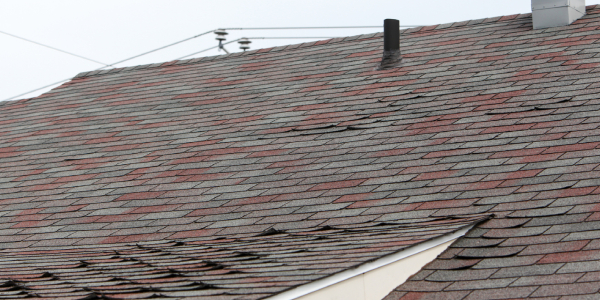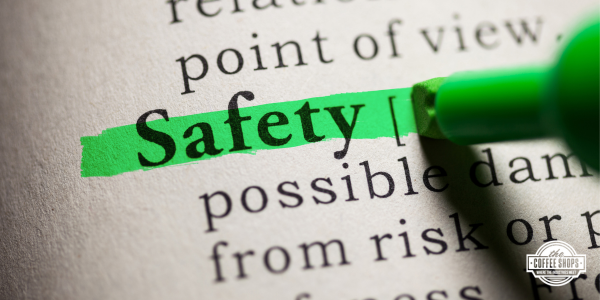UP TO THE MINUTE
6 reasons drones are the future of roof inspections

By EagleView.
From safety to accuracy and efficiency, learn why drones are now crucial tools in the damage assessment industry.
Spring and fall are key times for routine roof maintenance and the experts here at EagleView explain that at least two maintenance checks a year are necessary to keep roofs performing optimally. This is because, as time goes on, hail and snowstorms and natural disasters can cause damage to the roof and threaten the safety of the people beneath it. Even if there is no major damage, inspecting the roof is key to keeping even the smallest damages from cascading into high-cost repairs.
But sending your crew onto a roof for an inspection without knowing its current state can be stressful and dangerous. That’s why, whether you are checking for repairs, insurance claims or real estate appraisals, using a drone to inspect for damage is the most reliable, affordable and safe way to do it. When it comes to innovative AI software coupled with high-definition cameras, there is simply no beating drones. They are fully automated and easy to use for anyone tasked with operating one. They save time and money while presenting greater data than can be collected through a team of inspectors walking the roof. Safer, accurate and more affordable, using drones to verify roof damage is the wave of the future.
1 - Safety
Safety is the number one reason drones should be used in inspecting roof damage. Anytime someone climbs a ladder to access a roof, fall protection is required. Most injuries and deaths related to roof inspections occur due to falls. Not only are roofs high off the ground, but they can also be slanted and uneven. Depending on any damage, there are tripping hazards as well as fall hazards. Anyone carrying out a manual inspection on the roof has to be able to monitor their safety while also focusing on gathering as many pictures and other data as possible to complete an informed and detailed inspection. The elements may present an obstacle once on the roof. Rain, wind, lighting and even sun glare could put a roof inspector at risk. By using drones to verify roof damage, roof inspectors’ risk of injuries or deaths falls to virtually ZERO percent. They can keep their feet firmly planted on the ground to safely gather data.
2 - Accessibility
Another challenge for a manual inspector is the accessibility of the roof and its features. To begin, there may be extensive damage to the roof that makes walking on it impossible. Collecting valuable data is now out of the question. If a roof is walkable, there may be overhangs or small recesses that are often overlooked and unattended because an inspector simply can’t get there. That teeny tiny hole in the roof could be hiding in that space. The results of the inspection may be presented, but it will be incomplete without that essential information. That’s no problem for a drone. It’s designed to be able to access any spot on a roof.
3 - Accuracy
Launched and piloted from the ground with ease, the drone can be high above the roof and still capture high-resolution images, measurements and other important data. Using 3k or 4k cameras, pictures can be blown up into finite details while retaining their quality. Eliminating human error, the data is extremely accurate. Drones capture an entire layout of a roof as well as the intricate details lying therein. Areas that may be overlooked by the human eye on the roof can actually be discovered with more clarity by drone cameras coupled with AI software. The cup truly runneth over with collected data for a drone versus the minimal information a manual inspection may find.
4 - Efficiency
A typical manual roof inspection can take up to five hours to complete, even with more than one person involved. Utilizing drones cuts that time down to only one hour or less! Imagine having four hours back in your day and what that could mean for your business. Not only are you spared the hassle of climbing the roof and taking photos and measurements, you get the job done fast!
5 - Less manpower and equipment
A traditional roof inspection crew can sometimes require two or three people to properly complete a detailed roof inspection. That means a lot of ladders, ropes, safety equipment, cameras, measuring tapes and more. With drone inspection, you only need one person. Small in size, a drone can be carried in a backpack. Besides a small tablet or phone and hand-held controller, no other tools are required. Reduced inspection time, equipment and manpower mean lower costs and bigger savings!
6 - Damage reports and 3D models
Once data is collected by the drone, its AI software automates nearly the entire process. It can be synced to a cloud server and compiled into easy-to-read damage reports quickly. And that’s not all. The drone’s software creates 3D models from the roof so that you can virtually explore and revisit the site at any time. All damage details are expressed in the 3D model so that “no stone goes unturned.” With sophisticated, accurate and professional reports, businesses and homeowners alike can feel confident that using drone technology will give them the most thorough and innovative roof analysis possible.
Eagleview Assess for roof inspections
As the gold standard for drone-powered property data, EagleView Assess is the finest tool on the market today for assessing and verifying roof damage. With unparalleled accuracy and state-of-the-art proprietary software, EagleView Assess, combined with drones powered by Skydio – a leading U.S. drone manufacturer and world leader in autonomous flight technology–provides contractors with high-resolution images of the entire roof with options to generate automated damage reports and measurements for fast and accurate repair estimates. This means you can do the following:
- Access complete measurements and roof condition data – anywhere you can fly a drone.
- Safely capture imagery for the entire roof with automated obstacle detection that maps out each flight path to avoid trees, chimneys and other possible dangers.
- Shorten timelines and validate repair estimates with objective, accurate data accepted by leading insurance carriers.
Original article source: EagleView
Learn more about EagleView Assess in their Coffee Shop directory or visit www.eagleview.com.




















Comments
Leave a Reply
Have an account? Login to leave a comment!
Sign In